Environmentalism Chapter 23 - Understanding Poaching
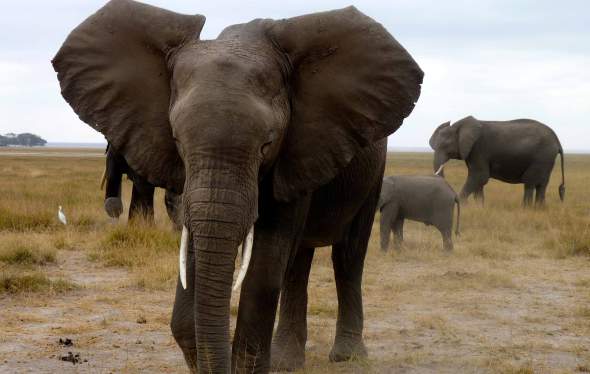
To get to grips with the current poaching crisis and to tackle demand then one has to place themselves in the shoes of the poacher, and the marketer, to knowing the facts and current laws as to why demand is driving the illegal animal parts trade intensely on a large international scale.
As quoted by The Convention on International Trade in Endangered Species of Wild Fauna and Flora in January of this year 2013 trade is vast in size and is not just being driven on the ground, its driven on the internet using simple code words such a “horn” “animal” to “bones” “rugs” and more which is relatively easy to locate.
However it’s frighteningly worrying that the 170+ nations whom agreed to The Convention on International Trade in Endangered Species of Wild Fauna and Flora laws are not obeying by these simple rules nor are they policing or “have created” a wildlife policing networking team to international policing monitoring service to arrest illegal traders, distributors and those that wish to violate and flout the rules.
At this current moment there “are few” law enforcement teams that work within many continents that will take action against smugglers plus working with agencies such as INTERPOL that will with the help of other policing agencies clamp down on illegal animal parts peddlers.
All nations that have joined the Convention on International Trade in Endangered Species of Wild Fauna and Flora that signed the treaty must agree to work on clamping down on these traders, yet still we see in Asia and Africa rules violated time again with many vulnerable, endangered, critically endangered to near threated animal parts and tropical pets on the market for fake medicine’s, bush meat/meat or just the tropical pet trade.
As explained in my previous document February 17th 2013 we cannot just lay blame to the poachers and must now open this extremely harmful trade up to the public for them to better understand as well as tackling the illegal wildlife parts trade outside of nations that are being hit hard, for instance South Africa where poaching of all Rhinoceros and Elephant species is colossally out of control.
I briefly explained 17th February 2013 that syndicates are preying on vulnerable individuals in nations that have been hit by drought, famine, climate destruction to civil unrest that has affected many African nations since the early 1980’s.
With the current destructive climate predictions for the next fifty to seventy years quoted to increase than we need to act fast before we view a complete biodiversity nightmare with species from the Rhinoceros, Elephant, Lion, Leopard, Cheetah and more pushed to extinction.
Before I explain more in depth of how to understand the poaching trade I would like to recommend these two paper book’s in to you that I myself have read with both printed on recycled paper.
Both books explain in great detail the seriousness with regards to the poaching crisis and how we need everyone on board to help. You can purchase the two paperbacks here which I do believe one can purchase in hard back too. http://www.amazon.co.uk/Blood-Ivory-Massacre-African-Elephant/dp/075094157X this is very good read for anyone that doesn’t understand the full extent of the poaching crisis and Killing For Profit I highly recommend to anyone that wishes to learn more about the illegal wildlife trade with regards to the Rhinoceros illegal horn trade http://www.amazon.co.uk/Killing-Profit-Exposing-Illegal-Rhino/dp/1770223347/ref=sr_1_1?s=books&ie=UTF8&qid=1361157582&sr=1-1
Preying on the vulnerable;
The United Nations Refugee Agency has identified for 2013 the following refugee camps that host from 500 to 25,000+ refugees in each camp – Please note this is just for Africa; please also note these figures are factual for January start 2012. Current figures for 2013 haven’t yet been released however International Animal Rescue Foundation © has asked for these figures plus other information that we are withholding.
- Refuges from Angola within camps stands at 128,664 with an extra 16,223 traveling in 2012
- Refuges from Botswana within camps stands at 85 with an extra 3,312 traveling in 2012
- Refugees from Comoros within camps stands at 422 with an extra 0 traveling in 2012
- Refugees from Lesotho within camps stands at 11 with an extra 34 traveling in 2012
- Refugees from Madagascar within camps stands at 289 with an extra 9 travelling in 2012
- Refugees from Malawi within camps stands at 222 with an extra 6,308 traveling in 2012
- Refugees from Mauritius within camps stands at 42 with an extra 0 travelling in 2012
- Refugees from Mozambique within camps stands at 155 with an extra 4,079 traveling in 2012
- Refugees from Namibia within camps stands at 1073 with an extra 6,049 traveling in 2012
- Refugees from Seychelles within camps stands at 42 with (no current record for 2012)
- Refugees from South Africa within camps stands at 429 with an extra 57,899 traveling in 2012
- Refugees from Swaziland within camps stands at 42 with an extra 759 traveling in 2012
- Refugees from Zambia within camps stands at 240 with an extra 45,632 traveling in 2012
- Refugees from Zimbabwe within camps stands at 25,048 with an extra 4,561 travelling in 2012
Fourteen states (nations) within and of the coast of Africa have serious refugee problems of which is being made worse by the following;
- War and civil unrest to political coups
- Environmental disasters (flooding, drought, agricultural crop damage from pests and diseases).
- High unemployment and anti-social crime
- Economic collapse
- Terrorism
- Ethnic cleansing
- Political instability (E.g. The 2000 land take over in Zimbabwe)
All 14 nations are of a concern to us with regards to syndicates taking advantage of the vulnerable within these camps however those most concerning as to where these syndicates may be located are listed below.
Please note there is still no factual evidence to prove as yet where these syndicates could be located however with recent and past arrest rates and “what citizens are being arrested” then by analysing this data action can be taken to pinpoint possible problem areas to placing into action, strategic planning on communicating, planning, sourcing, locating and arresting those involved that are sending “paid” vulnerable out of South Africa citizens in to South Africa to take down our fauna and flora being the Rhinoceros and the Elephant.

These problem area[s] needs to be addressed immediately and rapidly however sensitively as to not upset social unrest more by just wading into areas heavy handed that would only push the syndicates and poachers into to other areas of the unknown;
- Refuges from Angola within camps stands at 128,664 with an extra 16,223 traveling in 2012
- Refugees from Malawi within camps stands at 222 with an extra 6,308 traveling in 2012
- Refugees from Namibia within camps stands at 1073 with an extra 6,049 traveling in 2012
- Refugees from Mozambique within camps stands at 155 with an extra 4,079 traveling in 2012
- Refugees from Zimbabwe within camps stands at 25,048 with an extra 4,561 travelling in 2012
South Africa it’s self is still seeing vast asylum seekers moving in, plus fluctuating numbers of refugees moving in to South Africa from bordering nations since January 2011-2012. Viewing these figures and the current poaching arrest rates of non-South African citizens then it is more than evident that we have serious problems with syndicates working “outside of South Africa” but within Africa its’ self which needs addressing immediately or we will just continue to fight a losing battle.
It has been quoted by the United Nations Refugee Agency that;
At the end of 2011, there were some 449,000 people of concern to UNHCR in Southern Africa, including 145,000 refugees, 245,000 asylum-seekers, 55,000 internally displaced persons (IDPs) and 4,000 returnees.
Individuals in mixed-migration movements towards South Africa often use camps in Malawi, Mozambique and Zimbabwe as temporary stopovers, putting a strain on scarce humanitarian resources and creating tensions locally. This has led many governments in the region to restrict access to the asylum system by requiring travel documents at entry points and applying the “first safe country” principle, whereby entry is refused to asylum-seekers who have travelled through a safe country prior to their arrival.
Some positive steps have also been taken in the management of mixed-migration movements. These include Mozambique’s signing of the International Convention on the Protection of the Rights of All Migrant Workers and Members of their Families. Other countries in the region have pledged to accede to the relevant international and regional instruments and to undertake legal and policy reforms to address the mixed-migration challenge.
With the exception of Angola and South Africa, the countries in the sub-region hosting a significant number of refugees maintain encampment policies that restrict the freedom of movement of refugees and asylum-seekers and hamper their efforts to become self-reliant.
There are many people who may be at risk of becoming stateless in Madagascar, Malawi, Mozambique, South Africa and Zimbabwe. At the Intergovernmental event commemorating the Refugee and Statelessness conventions in Geneva in December 2011, Madagascar, Mozambique, South Africa and Zambia pledged to accede to one or both of the Statelessness Conventions.
This may all seem confusing to some however as I did explain yesterday the syndicate poaching gangs are intelligent and are only after that one single item and that is animal parts.
They know that by preying on the vulnerable using psychological mind games plus knowing that these individuals know the lie of the land then poaching “by proxy” as we say is considered to them the easy way in obtaining parts then paying the vulnerable a small sum that to them “the refugee” is a year’s wage to support their families.
As I explained yesterday most if not all refugees are living in putrid conditions with little or no food, lack of medical aid, lack of heating in the cold months, lack of electricity, with illness rife. And $1,000 to them sounds a lot better than $1.00 a day of which they are receiving little of.
How do we tackle this area though?
Without going into great detail we do need to start tackling the poaching crisis outside of South Africa too that holds the largest populations of Rhinoceros in the world via focusing our attention on what is “going on around us”. Whilst still battling within “we must use fresher eyes to view” what’s going on around us, if we are aware the poachers are deriving from over the borders then we need to battle them there too of which we are able to track and gain intelligence on syndicate gangs.
We are fully aware that patrolling in other nations is not that easy and cannot just be carried out on one’s say so or without permission however there are many ways and means that we and others work in the European Union and other international nations of which we have managed to build hearts and minds, communications, rapport thus leading to successful operations positive surveillance and high arrests.
The saying goes the (answer is always in front of you) is literally just that, and by analysing “whom is arrested” and what nations these individuals are deriving from to what is on-going within these nations then one can build a much clearer picture up of who to target and where, of which we can tackle demand and hit it on the head hard nailing these kingpins and taking the opportunists out too.
The problems though are not just the vulnerable being preyed upon we are also dealing with the illegal arms trade/civil unrest or war and this is an area that needs outside assistance from governmental forces to building good political relations and rapport in taking these individuals out thus neutralising the problem and the persons.
Civil war and funding of the illegal arms trade;
Since the September 11th terrorist atrocities that shocked the word when America was hit by Al-Qaida security has drastically been stepped up that’s seen many restrictions placed on nations and individuals.
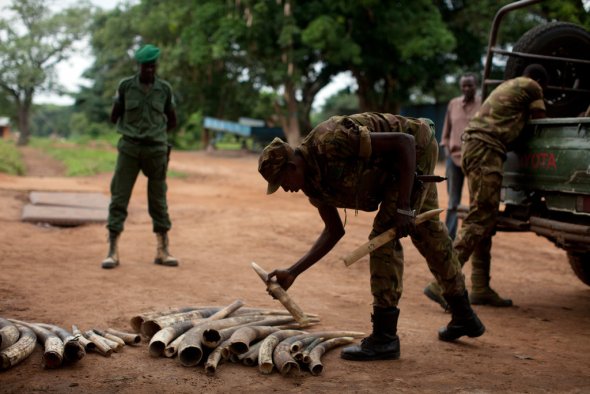
Due to these attacks many illegal terrorism units have then since turned to what can fetch them the most monetary gain to purchase illegal arms to fund their barbaric atrocities instead of the “arms being imported” from countries that they have previously attacked that did support them in the past.
America and Europe have funded many “terrorist nations” with military weapons that then travelled into the hands of terrorists and not as requested to the security forces tackling these crude radical mentalists, and because to these restrictions the animal parts trade has fluctuated that is fuelling organised and serious crimes against humanity to the narcotic trade too.
Illicit trade in wildlife has exploded for 2013 into a $19bn a year criminal enterprise, threatening government stability and national security.
Reports quoted the current effort to stop trafficking in ivory, rhino horn, and other endangered species was pitifully inadequate against the powerful and sophisticated crime syndicates with a global reach.
The report quoted;
“It has been a failure. We are losing these populations in front of our eyes,” “It is being outgunned in terms of technology. It is being outgunned in terms of resources, and it is being outgunned, worst of all, in terms of organisation.”
The report, compiled by the Dalberg consulting firm, was based on interviews with government officials in countries on both sides of the smuggling chain in Africa and Asia.
Conservationists have contacted the United Nations to now spur governments in to taking stronger and direct action into combatting illegal wildlife smuggling that’s fuelling the arms trade and terrorism.
Within the past year alone, organised crime syndicates armed with military-issue machine guns have slaughtered hundreds of elephants at a time in places like Cameroon’s Bouba Ndjida national park, the report said.
The wildlife trade appears to fund terrorist cells in unstable African countries – threatening national security – and that the industry often uses the same networks and routes as other illegal trades, such as drug trafficking.
Over the past five years, meanwhile, the numbers of rhinos poached in South Africa has risen exponentially from about 20 a year to an expected 600+ for 2012 end It is shocking to see the numbers grow the way they have.
Elsewhere, powdered rhino horn, a medicine that has now morphed into a status symbol in some parts of south-east Asia, has sold for upwards of $100,000/kg. The average rhino horn was worth $600,000 – a price that gave the traffickers plenty of cash to pay off corrupt government officials.
The explosion of the trade – and the involvement of organised crime and violent rebel groups – this year captured the attention of the Pentagon and the state department. The secretary of state, Hillary Clinton, upgraded trafficking from a conservation issue into a national security threat. Wildlife trafficking now threatens government control and national borders.
Hilary Clinton quoted;
“It is one thing to be worried about the traditional poachers who come in and kill and take a few animals, a few tusks, a few horns, or other animal parts,” Clinton told a meeting at the state department. “It’s something else when you’ve got helicopters, night vision goggles, automatic weapons, which pose a threat to human life as well as wildlife.”
Smuggling of wildlife was now overseen by powerful crime syndicates stretching across international borders. The crime groups use their enormous profits to buy weapons, finance civil wars and buy corrupt government officials – rendering existing laws against trafficking almost useless.
America is the second largest destination for smuggled goods made from endangered wildlife. This is not an issue that can be solved solely by departments of parks or environment or solely by park rangers who are fighting it on the frontline we need the full strength of the government.”
We need to deploy the police and in a number of cases we need to deploy the military to crack down on these terror cells immediately before another mass human fatality “occurs”. Those that are dealing in illegal contraband, smuggling, trafficking down to the poachers, distributors and the opportunists need to be located, prosecuted and the key thrown away.
Some of the more sophisticated resources to catch the traffickers are now forthcoming. Google awarded WWF a $5m grant for aerial drones to track poachers and endangered wildlife, such as rhinos, tigers and elephants. (However why didn’t Google help the smaller units that all work together, this then singles others out and is not fighting the war on poaching and illegal trade on a larger scale to overwhelm these criminals.
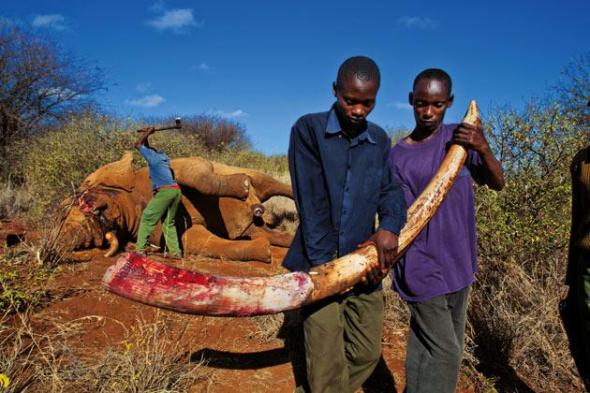
But the overwhelming takeaway from the report was the failure of political will in some countries to deal with trafficking and this is where we ourselves International Animal Rescue Foundation © are either viewing nation not willing to become embroiled in counter terrorism due fear of their own inner state problems, an uprising attempt as seen in in some nations 2012-2013, or they simply are corrupt and more involved than we and other conservationists believe. There was evidence of that gap in the report itself.
Dalberg interviewed 15 government officials and seven representatives of international organisations that deal with trafficking, after making dozens of initial contacts. But the firm said some of the key players – such as Vietnam, a large and growing market for illicit trade in rhino horn – refused to take part. Two government officials objected specifically to questions about government corruption. (With the COP march summit only days away with Vietnam being seen as a focus of interest we as an organisation believe they are going to play hard to get).
The only way in which then to deal with nations such as Vietnam is to place imminent and immediate sanctions on them until they take direct action to curb the illegal wildlife trade thus decreasing the illegal arms and narcotic trade and civil unrest in African and Arab nations. Economic sanctions would be the preferred choice of weapon however by dong this (would it see an increase in criminal activity thus placing more animals in danger?).
“However by using past and current events within talks to ministers and the current endemic of wildlife poaching, sanctions” (could be imposed).
Who’s fuelling the trade though?
There are many fractions fighting in Africa however the main parties I have highlighted below that we are 100% certain on are going to place African wildlife in danger more unless immediate sanctions are imposed and tougher action taken further afield.
M23 March 23 Movement;
The March 23 Movement (French: Mouvement du 23-Mars), often abbreviated as M23, is a rebel military group based in eastern areas of the Democratic Republic of the Congo (DRC), mainly operating in the province of North Kivu. The group is currently involved in an armed conflict with the DRC government which has led to the displacement of large numbers of people. On 20 November 2012, M23 took control of Goma, a provincial capital with a population of one million people.
The M23 rebels have been responsible for a number of poaching incidents involving Elephants in the region as explained by the author of Killing for profit. They have murdered and mutilated Gorillas to exporting them out of the nation for big money into Nigeria mainly.
Leaders of the M23 movement are, Makenga Sultani, Jean-Marie, Runiga Lugerero
In late 2012 M23 Rebels acquired approximately 20 shipping containers filled with arms and ammunitions of various calibre, as well as 6 artillery pieces (type 26 and BM-type rocket launchers), all of which were abandoned by the FARDC in its retreat from Goma.
The M23 rebel and Congolese war has displaced many people that now reside in another refugee camp situated about 150 km north and 6 hours’ drive from Goma. A small town which population has more than doubled with the arrival of 20,000 displaced people. The camp is located in the Congo named Nyanzale camp.
South African police arrested 19 suspected members of a Congolese rebel group this February 2013, accusing them of plotting to overthrow their nation’s government after it recently came under attack by militants said to be backed by neighbouring Rwanda. http://abcnews.go.com/International/wireStory/south-africa-police-arrest-alleged-m23-rebels-18406975
Reports of poaching https://www.commondreams.org/headline/2012/09/04-0 by the Ugandan army supported by the Americans took down a herd of Elephants o which Ivory was very quickly whisked away in what was described as “a professional military attack” similar to that of a Special Forces raid http://www.globalpost.com/dispatch/news/regions/africa/120904/ivory-ugandan-army-suspected-elephant-slaughter
It has been quoted and is very factual –
Some of Africa’s most notorious armed groups, including the Lord’s Resistance Army, the Shabab and Darfur’s janjaweed, are hunting down elephants and using the tusks to buy weapons and sustain their mayhem. Organized crime syndicates are linking up with them to move the ivory around the world, exploiting turbulent states, porous borders and corrupt officials from sub-Saharan Africa to China, law enforcement officials say.
But it is not just outlaws cashing in. Members of some of the African armies that the American government trains and supports with millions of taxpayer dollars — like the Ugandan military, the Congolese Army and newly independent South Sudan’s military — have been implicated in poaching elephants and dealing in ivory.
Joseph Rao Kony – Joseph Kony (MOST WANTED WAR CRIMINAL) – Lord’s Resistance Army
Joseph Rao Kony born sometime between July and September 1961 is the head of the Lord’s Resistance Army (LRA), guerrilla group in Uganda.
While initially enjoying strong public support, the LRA allegedly turned on its own supporters, supposedly to “purify” the Acholi people and turn Uganda into a theocracy. Kony proclaims himself the spokesperson of God and a spirit medium, has nurtured a cult of personality, and claims he is visited by a multinational host of 13 spirits, including a Chinese phantom. Ideologically, the group is a syncretic mix of mysticism, Acholi nationalism and Christian fundamentalism, and claims to be establishing a theocratic state based on the Ten Commandments and local Acholi tradition.
Kony has been accused by government entities of ordering the abduction of children to become child-sex slaves and child soldiers. An estimated 66,000 children became soldiers and two million people have been internally displaced since 1986. Kony was indicted for war crimes and crimes against humanity by the International Criminal Court in The Hague, Netherlands, in 2005 but has evaded capture. The LRA operates in Uganda, the Democratic Republic of Congo, Central African Republic and South Sudan, his exact geographical location is being hunted down by Special Forces.
Joseph Kony’s destruction against Elephants;
Joseph Kony has commanded his Lord’s Resistance Army soldiers to kill elephants in Central African forests, a new study has revealed. The LRA Crisis Tracker 2012 Annual Security Brief says LRA escapees have reported witnessing rebels shoot elephants and remove their tusks at Kony’s demand. Individuals that have escaped abduction by the LRA also say that unknown persons arriving by helicopter to remote locations have provided rations in exchange for ivory.
The LRA has been responsible for some of the most egregious violations of human rights in Central Africa. Now Kony and his rebels appear to be engaging in elephant poaching and ivory smuggling to sustain their terrorist operations. The security implications of illegal wildlife trade extend far beyond conservation. It is a national security issue and a threat to human life.
Last month the United Nations Security Council requested an investigation into LRA’s sources of funding, including elephant poaching and ivory smuggling. The move came just after a briefing of UN ambassadors highlighting the national security threat posed by wildlife crime.
Poaching of elephants has reached crisis levels in Central Africa, largely due to demand for ivory products in Asian markets such as China and Thailand. Thailand is by far one of the nations in which Joseph Kony is involved within transporting illegally smuggled ivory. Please goggle for the petition and sign asking for Thailand to now cease all ivory sales.
Lastly we see new international battles that are raging in Mali with Somalia being a focal point for EU forces to invade and restore order as of colossal terrorist atrocities, illegal wildlife trade, narcotics, ethnic cleansing and terrorism training camps.
French-led war in Mali has come with a huge cost for the local population whose livelihood has been shattered. Petty crime, anti-social behaviour, high unemployment and now again more refugee camps are breeding to the north of Mali. This is not good news and we know exactly what is going to happen here should the French and British and not sustain this war now.
As explained there are already 14 “recognised” refugee camps in Africa and now we have another in Mali that is growing larger by the day with very little signs of aid relief moving in and order being restored.
The majority of the youth there now find themselves without jobs with many are trying to spend their time by any means possible. As a result, petty crimes such as pick pocketing and theft have become a common occurrence among the refugees in the north of the country.
Some of the youth are reportedly using violence against women refugees who are increasingly becoming vulnerable to attacks in the north. Some of the acts committed against refugees according to locals have gone unreported. Given the already poor security situation within several camps across the country’s north, the refugee population there say what keeps them alive is the hope that they will live to see the next day.
The crime rate in the northern Mali has been on the rise with mostly people in refugee camps bearing the brunt of that due to the high unemployment rate caused by the French-led war in Mali.
Sadly again Elephants are coming under brutal attack;
Events of 2012 have meant that for the first time, three elephants have been poached. Community information networks discovered the identities of the perpetrators but require armed back-up to be able to act on this information, particularly with the influx of a variety of armed groups and the imminent military campaign to retake the north of Mali.
The 550-700 elephants are a notable remnant population and represent 12% of all West African elephants. This sub-desert population largely escaped the intense poaching of the 1980’s that extirpated other Sahelian populations, making them the most northerly African population and a high priority in IUCN’s regional elephant strategy. They survive by making the largest elephant migration in Africa, whose route takes them annually from Mali to Burkina Faso and back. One elephant was measured to have covered 3,435 km in 12 months!
With the vulnerable being preyed on in many African refugee camps, civil unrest which has been on-going since the 1980’s and now the new war over the border of Nigeria where it has been reported more Elephants are being poached than anywhere else in the continent what hope does our wildlife have?.
Although we and other conservationists cannot work to cease “civil wars” we can take action to hunt for the syndicates in bordering nations with South Africa along with working to build a lateral bond up with refugee agencies to help in sourcing, reporting and locating illegal activities in the area.
International Animal Rescue Foundation © works in building community relations too, and by building relations and using intensive strategic surveillance too, and informer networks then we are hopeful in tackling at least this “area” whilst reporting back to other agencies thus sourcing and arresting criminal syndicates that are taking down our Elephants and Rhinoceros.
Taking direct and immediate actions must been seen as a priority and one cannot save these species on a social media page. WE AND YOU have abilities to cease this poaching crisis so let’s start using hearts and minds.
Please stay tuned for part III of five – Understanding poaching and the illegal wildlife trade,
Dr J C Dimetri – Chief Executive Officer / Founder 2010-2011
info@international-animalrescue-foundation.org.uk


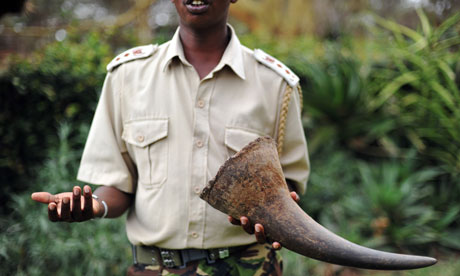
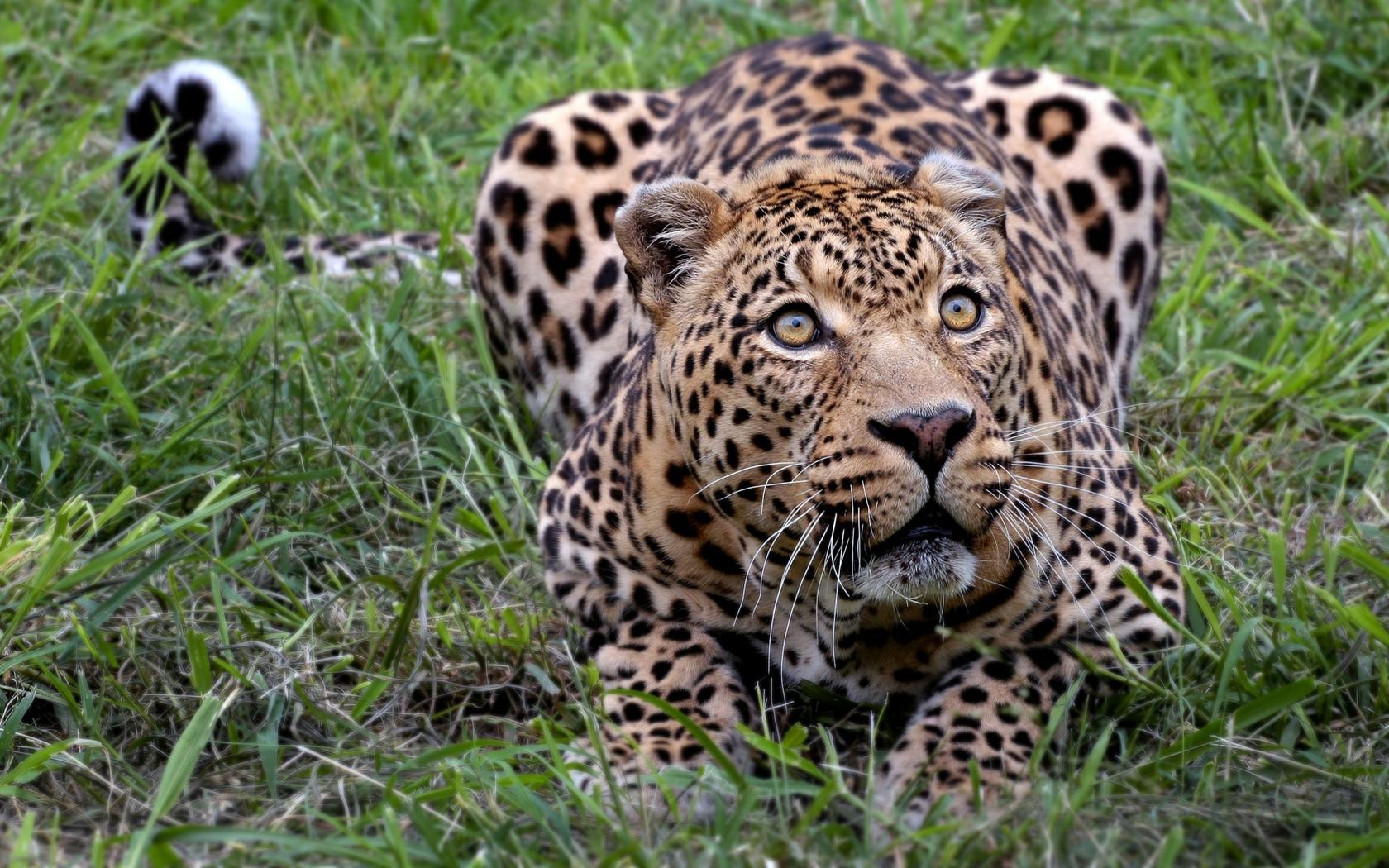
Thank you for your reply, should it merit a response we will respond in due course. This site is owned by International Animal Rescue Foundation and moderation is used.